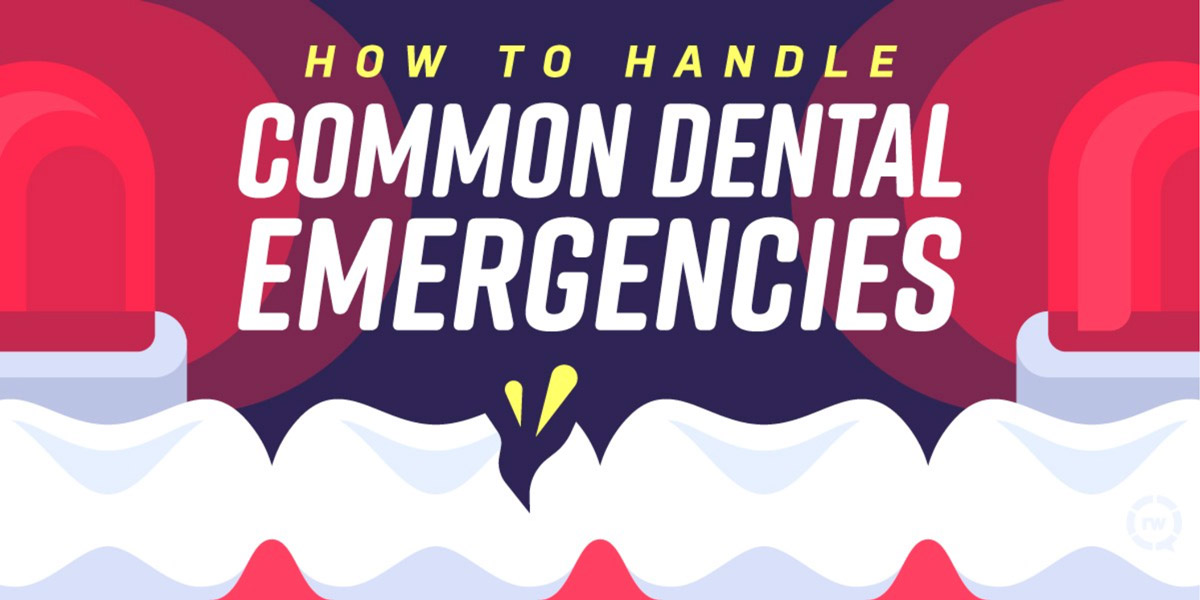How to Handle Common Dental Emergencies

Let’s say you sprained an ankle. What are your first steps? Most of us probably would say something along the lines of plop down on the nearest couch, ice the ankle, elevate it, add some compression, and see a doctor if it’s a bad sprain.
But what about a dental emergency, like a broken tooth? What’s your first step?
Don’t be surprised if you don’t know. Most of us aren’t that familiar with the recommendations. But after this post, you’ll be the go-to source if it happens.
So What, Exactly, is a Dental Emergency?
A dental emergency is any event that warrants immediate care to save a tooth, stop bleeding from the mouth, or relieve tooth or mouth pain. Some of the most common examples we see at the office of Richard A. Murdoch, DDS, include a cracked or knocked-out or displaced tooth or a toothache.
Tips for Treating Common Dental Emergencies
We see our fair share of dental emergencies here in Denver and we’re equipped to handle them all. Some dental emergencies require a visit to the ER for more extensive injuries such as a concussion.
If you or a family member experience any of these, call us as soon as possible, and we’ll let you know if you’ll need to see Dr. Murdoch.
• Knocked-out or displaced tooth
For adults, place the tooth in the socket without touching the root; if that’s not possible, place the tooth between your check and gums, or in milk, or in an
ADA-approved tooth-preservation solution. It’s crucial to keep the tooth wet. If the tooth is displaced, you can try and reposition the tooth into place. In either event It would be good to visit our office to assess the damage to see what needs to be done.
For children with baby teeth, come to our office as soon as possible; do not try to place the tooth in the socket.
• Cracked or fractured tooth
•Rinseyourmouth,andplaceanicepackonyourfaceifthereis swelling.Wrap the tooth fragment up in wet gauze or a towel and bring it to the office. If the tooth feels loose or hurts to bite you should come in to the office.
• Toothache
Use warm water to rinse your mouth, and gently floss to remove any food.
If you note any facial swelling (which may signal infection), come to our office or your healthcare provider as soon as possible.
• Bitten Tongue or Lip
Clean the area with a cloth, or rinse your mouth with water. Apply an ice pack to the area. If the bleeding doesn’t slow, come to our office or go to the ER.
Tips for Preventing Emergencies
Taking the right measures can keep your teeth safe. Here are a few easy precautions you and your family can take each day:
- Use scissors or a tool, rather than your teeth, to open or cut items
- Wear a mouthguard when playing high-impact sports, like football, basketball,and soccer
- Wear a helmet when using a bike, scooter, or skateboard
- Never chew hard foods, like ice and hard candy
- Help young children keep toys and small items out oftheir mouths
• Never let your young child wonder around the house with their long handled toothbrush in their mouth.
• NeedMoreInformation?Give us a call or visit our website. Everyone at the office of Richard A. Murdoch,DDSis happytoansweranyquestionsyouhave!
You can reach us at 303-355-6340 or www.murdochdds.com
December 12, 2019
